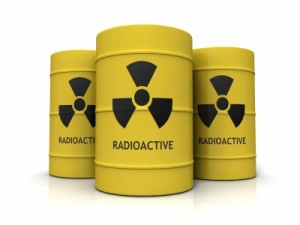Water Conservation
Pay very close attention to fracking and the havoc it is causing.
There has been an increased awareness and messaging about the controversial process of “fracking” a drilling technique that is used to obtain highly sought after fossil fuels such as oil and natural gas. So much controversy has come to light that we are now seeing public service announcements (PSAs), online advertising and even testimony in congressional hearings from the industries promising safety. In my experience when an industry goes on the offense to persuade us on how safe a product or service is, there is something wrong.
 The basic process of fracking involves injecting high pressure fluid into wells causing cracks and fracturing of the shale and rock surrounding the well, releasing the gases and oils. The fluid used contains mostly water but about 2% is chemical additives consisting of around 630 different chemicals. One of the most heavily debated aspects of fracking is the wastewater it produces and how to safely clean up and dispose of the contaminated water. The Huffington Post recently ran a story regarding the state and federal debate on regulating wastewater. Interestingly many politicians are fighting to keep regulation at a minimum to ensure we don’t impact the industry, putting money before safety and environmental concerns.
The basic process of fracking involves injecting high pressure fluid into wells causing cracks and fracturing of the shale and rock surrounding the well, releasing the gases and oils. The fluid used contains mostly water but about 2% is chemical additives consisting of around 630 different chemicals. One of the most heavily debated aspects of fracking is the wastewater it produces and how to safely clean up and dispose of the contaminated water. The Huffington Post recently ran a story regarding the state and federal debate on regulating wastewater. Interestingly many politicians are fighting to keep regulation at a minimum to ensure we don’t impact the industry, putting money before safety and environmental concerns.
The chemicals found in the fracking fluid are quite dangerous; many can cause kidney, respiratory and immune diseases and are linked with many different cancers. In 2009, New York’s Department of Environmental Conservation studied samples of the wastewater left from fracking in the Marcellus Shale. It found that 13 different wastewater samples contained radioactive materials thousands of times greater than what people could ingest. The findings specifically found a derivative of uranium called radium-226. Based on the EPA’s website radium-226 is a naturally occurring radioactive metal that is linked to diseases such as bone cancer and lymphoma.
A movie called Gasland summed up the problem quite well when it exposed families that could literally light their tap water on fire. This was due to contamination by natural gas which seeped into the water supply. iSustainableEarth.com recommends to each of our readers that you become more familiar with fracking, especially if you live near areas where this practice is ongoing. The quicker we can work towards sustainable production of renewable energy the quicker topics such as these will fade into the history books.
Learn more on this topic by watching this video with actor Mark Ruffalo, one of the leading activists against fracking practices.
Image: Idea go